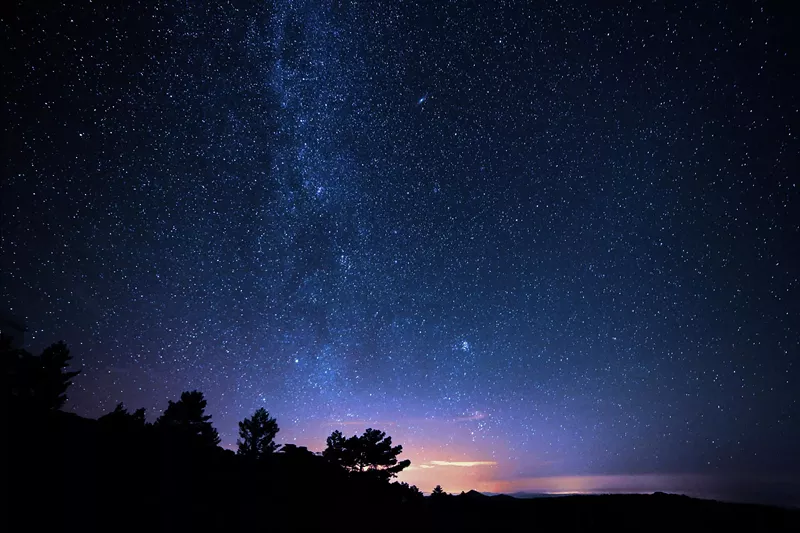While a blue moon is the second full moon in a calendar month, a black moon is the third new moon in a season of four new moons. The current season began with the summer solstice on June 20 and ends with the equinox on September 22. There were new moons on June 25 and July 24, and there will be more on August 23 (the black moon) and September 21: That makes four new moons in a season, which only happens once every 33 months.
While the black moon can't be seen with the naked eye, the presence of one does make for optimal stargazing conditions. In the summer, the Milky Way is in a prime position to be viewed from the Northern Hemisphere.
Here's what to know about the black moon in Denver.
When is the Black Moon in Denver?
The black moon occurs in the early hours of Saturday, August 23.What Time is the Black Moon in Denver?
Catch the astronomical event at 12:06 a.m. on Saturday, August 23, in Denver. In other words, stay up late on Friday, August 22.Saturday's new moon is a seasonal "black moon" — a rare phenomenon that occurs once every 33 months. Here's what that means and why it's a great night for stargazing. https://t.co/xyoICLg5Ko
— Live Science (@LiveScience) August 19, 2025
How to Make the Most of the Black Moon in Denver?
While you won't be able to see the black moon itself, the timing of this moonless night offers stargazers optimal conditions for viewing a moonless summer sky while the Milky Way is at its prime viewing condition from the Northern Hemisphere.Live Science recommends finding the three bright stars of the Summer Triangle in the southeast — Vega, Deneb and Altair — as the Milky Way will be streaming through the left side of the Summer Triangle and down to the southern horizon.
It's best to look at the sky away from light pollution. So head toone of Colorado's many designated Dark Sky Places, or a less-populated spot in the mountains.
We recommend Browns Canyon National Monument, two hours southwest of Denver, which has campgrounds available for $28 per night, or Great Sand Dunes National Park and Preserve in Mosca, where you can view the Milky Way through high-quality telescopes at the Kosmos Stargazing Resort.
Just make sure to check for the latest wildfire activity before you head out.
Don't feel like venturing out of Denver? Check out Chamberlin Observatory near the University of Denver.
What's Special About a Black Moon?
A black moon is simply a rare new moon. It only occurs about once every 33 months.With the absence of the moon, the stars look brighter, creating great skygazing conditions.
In astrology, new moons are seen as a fresh beginning, making them an ideal time for meditation, manifestation and setting intentions.













